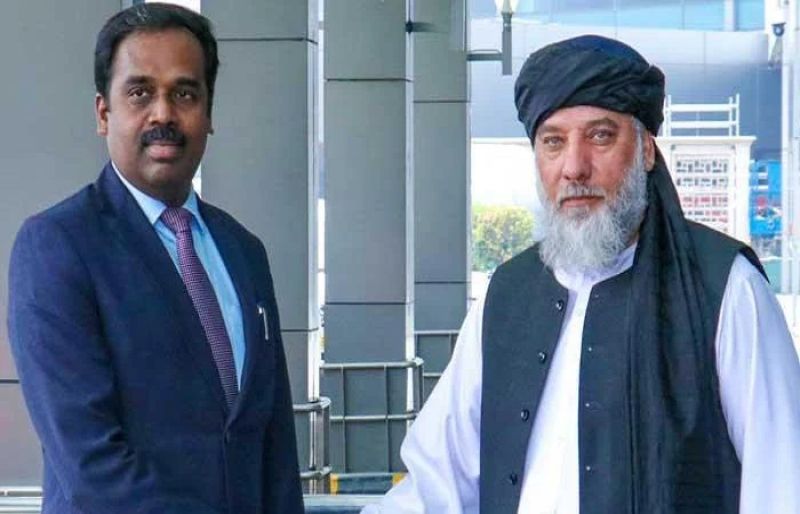Afghanistan’s Taliban-led government is increasingly turning to India for trade, investment, and development support, signaling a significant shift in its foreign policy and economic priorities.
For over two decades, Taliban rhetoric painted India as a Hindu “kafir” state that backed “anti-Islam” forces in Kabul.
India was frequently accused of meddling in Afghan affairs, with Indian consulates labeled as intelligence hubs and Indian aid dismissed as foreign interference.
Now, the same government is sending its foreign and commerce ministers to New Delhi, seeking investment, markets, and infrastructure support.
From Ideology to Pragmatism
The pivot represents a marked departure from past ideological positions. The Taliban once justified the destruction of the Bamiyan Buddhas as a fight against “un-Islamic idols” and the Buddhist-Hindu civilization. Today, they court India, a country that actively promotes and protects the very cultural heritage the Taliban attacked.
Similarly, the Taliban’s historical narrative of labeling the Kabul republic as “India’s puppet” contrasts sharply with their current dependence on India for wheat supplies, reconstruction funds, trade corridors, and access to ports. Analysts note that this transactional approach highlights a pragmatic prioritization of economic stabilization over past ideological claims.
Strategic Choices Over Religious Rhetoric
Despite their repeated emphasis on Muslim solidarity and historic ties with Pakistan, the Taliban have increasingly bypassed their immediate Muslim neighbor amid tensions over border issues, TTP activity, and refugee flows, choosing instead to strengthen ties with India.
Likewise, the Emirate has historically opposed “Western economic systems” and interest-based finance. Yet, it is now leveraging India’s connections to global financial institutions to access banking channels, investments, and reconstruction projects.
Domestic Absolutism vs Foreign Flexibility
While maintaining strict domestic policies—restricting girls’ education, women’s work, and media freedoms in the name of “pure Sharia”—the Taliban display flexibility abroad, negotiating with former ideological adversaries to secure aid, trade, and diplomatic recognition.
Notably, issues such as Kashmir, India’s Citizenship Amendment Act, and anti-Muslim violence receive little attention during official visits to New Delhi, reflecting a prioritization of economic and diplomatic objectives over ideological messaging.
Borders and Recognition
The Taliban continue to challenge the Durand Line with Pakistan but show restraint in dealings with India, respecting its security concerns and acknowledging practical realities, despite India not formally recognizing the Taliban regime. These repeated ministerial visits underscore a clear pursuit of de facto recognition and international legitimacy.
Expert Takeaway
Observers suggest that Afghanistan’s Taliban government has set aside past jihadist and ideological rhetoric in dealings with India, prioritizing trade, aid, and political recognition. Analysts note that this pragmatic approach demonstrates the tension between the Taliban’s domestic ideological rigidity and their foreign policy pragmatism in a fragile state.

